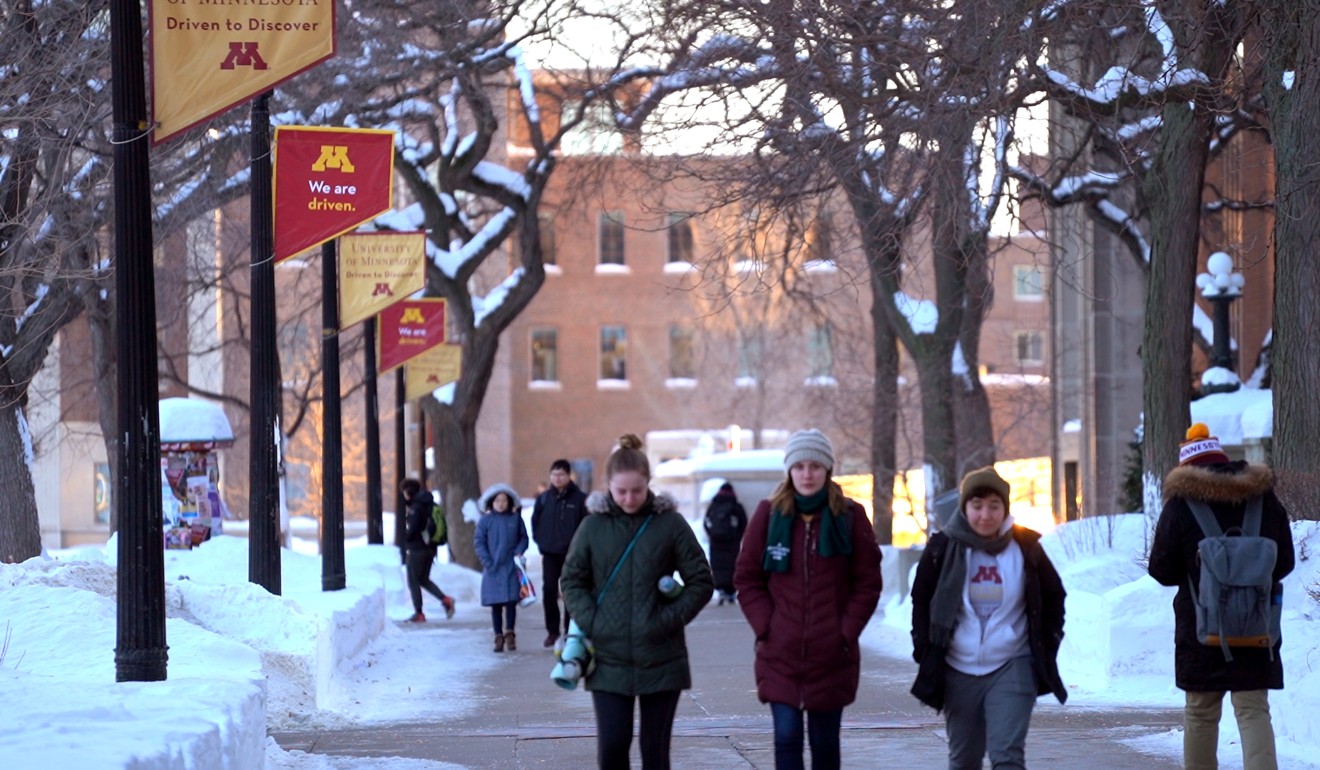
The US should keep its universities open to Chinese students and organisations – education is the best weapon in promoting democracy
- America’s founders, like Confucius before them, saw education’s anti-authoritarian benefits. Banning Chinese students would end a potent US edge in its ideological rivalry
Despite over 100 years of historic connections with China, and a near 10-year relationship with the Confucius Institute, the University of Minnesota has now suspended ties with China and Huawei. Concerned about national security and the US-China trade war, the Trump administration has given American educational institutions a choice: the Chinese organisations or US government funding.
All but six states have at least one Confucius Institute at a university. Of the more than 1 million foreign students attending US universities, 360,000 are Chinese. These students are now seen as national security threats.
White House adviser Stephen Miller proposed a ban on student visas for all Chinese nationals, but US ambassador to China Terry Branstad convinced President Donald Trump to reject the proposal. Branstad argued that a ban would not only damage American higher educational institutions but also cause diplomatic fallout.
When it comes to Confucius Institutes, White House policy formulations are ill-advised and counterproductive. The institutes operate under the Chinese Ministry of Education but the American host institutions have oversight.

Banning the best and brightest Chinese students from American universities has its own counterproductive consequences. The US National Science Foundation reported in 2013 that 92 per cent of Chinese students with American PhDs lived in the US after graduation. The trend now is that they are prized more in China than in America – only 45 per cent of graduates now choose to remain abroad.
A report by Bloomberg News pointedly states: “US-trained Chinese-born talent is becoming a key force in driving Chinese companies’ global expansion and the country’s efforts to dominate next-generation technologies like artificial intelligence and machine learning.” This reverse brain drain may be associated with the lack of a single American company to compete with Huawei; the Pentagon recently reached out to Nokia and Ericson, two Nordic companies, for help.
This shows that it is nearly impossible to prevent China’s continued advancements when science and technology naturally proliferate over national borders. The recent debacle at the Trump-Kim summit illustrates that US efforts have already proved increasingly futile to stop the proliferation of nuclear technology to North Korea.
The Trump administration could proactively push China to open its educational institutions to American centres as part of reciprocity in trade war negotiations. But Branstad learned that Chinese authorities have denied US efforts to promote American culture in China. The White House has also reduced State Department funding for public diplomacy.
One should, it has been said, “keep your friends close, and your enemies closer”. American educational institutions must therefore be promoted to ensure shared progress between the two nations.
Both Benjamin Franklin and Thomas Jefferson understood public education as the secret formula for the success of a young republic. As admirers of Confucius and Chinese culture, they both believed that “natural aristocracy” by merit is better than birthright or inherited wealth.
In his reply to John Adams, Jefferson wrote, “I agree with you that there is a natural aristocracy among men. The grounds of this are virtue and talents … There is also an artificial aristocracy, founded on wealth and birth, without either virtue or talents … The natural aristocracy I consider as the most precious gift of nature, for the instruction, the trusts, and government of society.”
Franklin and Jefferson established the first public higher-educational institutions – the University of Pennsylvania and the University of Virginia – on a merit-based system similar to the Confucian scholar-official system in ancient China. Mencius, a Confucian disciple, said that emperors or kings required public consent to rule: “The people are the most important element of the state, the territory comes next, and the king last.”
To correctly tell the world about the venerable democratic ideas of Confucius and his moral guidance, American people must find different leaders who will learn from history and the positive elements of Chinese culture. Influenced by Confucius, Jefferson – like Franklin – preferred natural aristocracy for a more functioning democracy in America.
Patrick Mendis, a former American diplomat and military professor, is the author of Peaceful War and an award-winning alumnus and a keynote speaker of the 100th anniversary of China-Minnesota relations at the University of Minnesota. The opinions expressed here are his own

